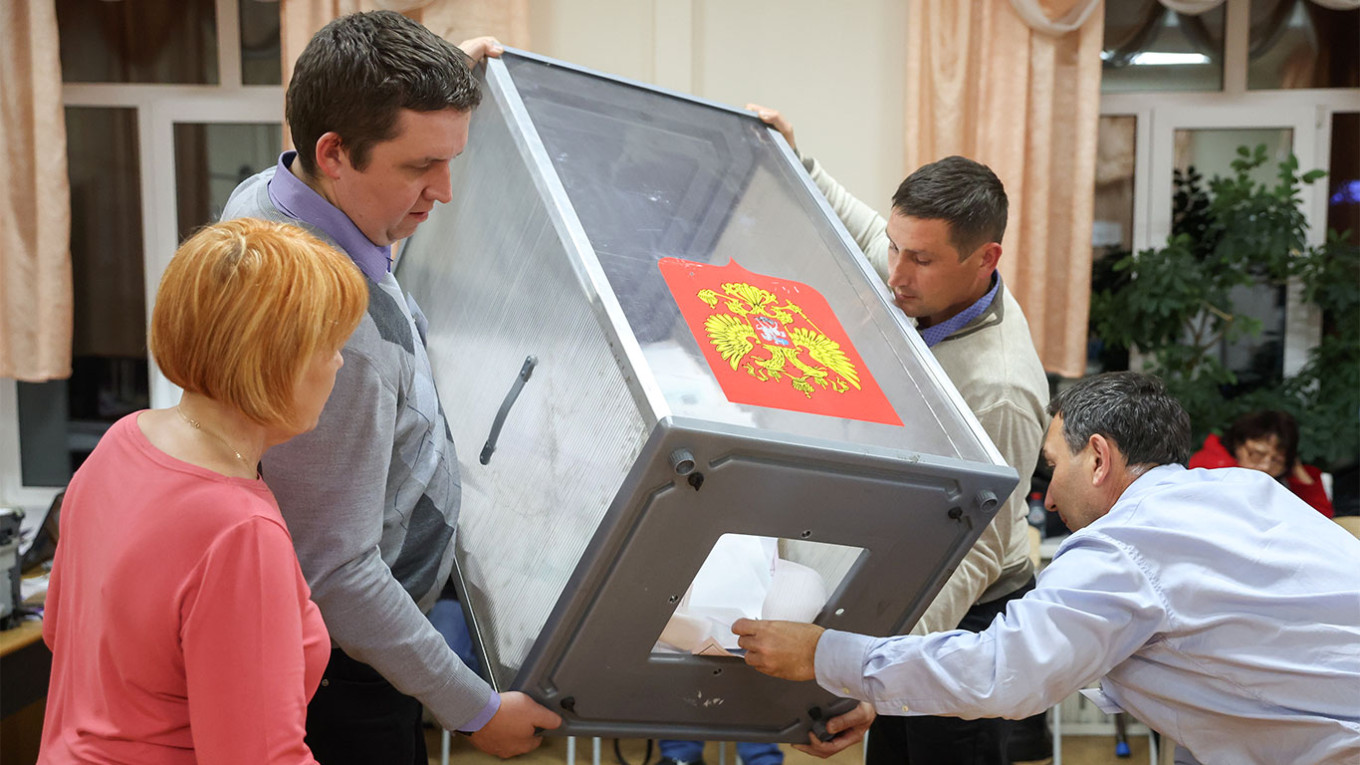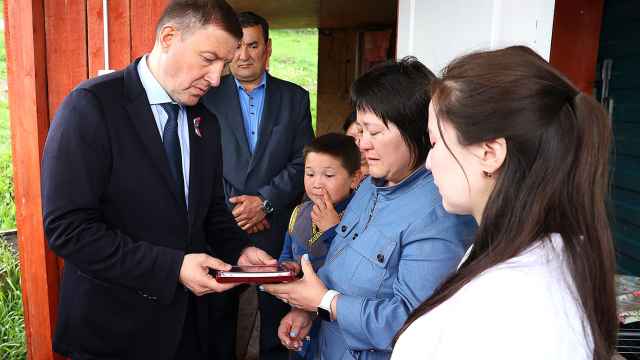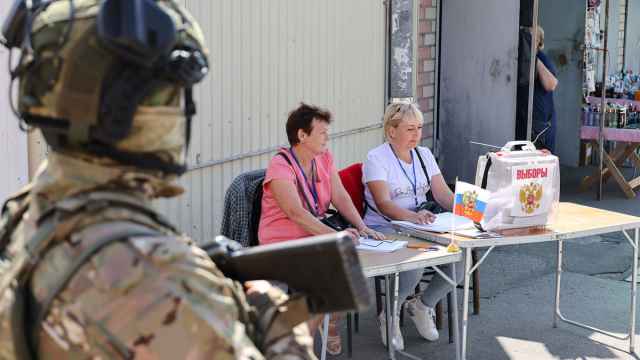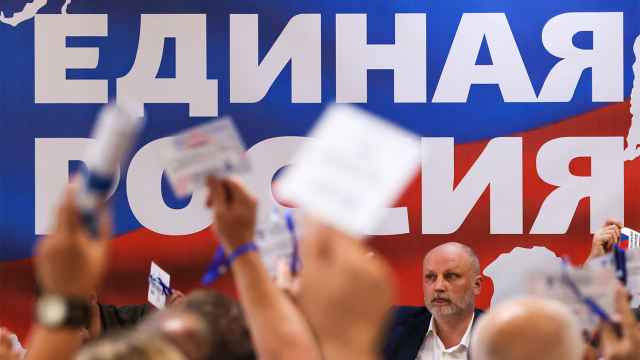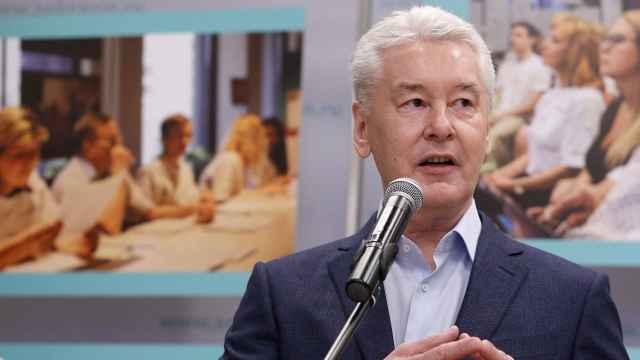Russia has wrapped up its regional elections, held over a three-day period, for thousands of seats in regional councils and legislatures as well as the governorship of over 20 regions. But what made these elections particularly noteworthy was not the results themselves, but what the Kremlin might have learned from the process which it will take forward for the upcoming presidential elections in 2024.
Much has been made in Russian media of the participation of the newly annexed territories of Ukraine, whose dubious results showed sweeping wins for the ruling United Russia party. Much of the news coverage focused on the fact that United Russia deputies retained their posts with comfortable majorities of over 70% in almost all regions, aside from the Oryol region and republic of Khakasia, where the Communists – the usual party of second place – were victorious. The authorities have evidently learned from the disastrous elections of 2018, which saw United Russia deputies lose four governor seats, with particular problems holding the Far East. These elections followed months of nationwide protests against a deeply unpopular law to raise the pension age. United Russia was plunged into crisis, as both the public and even its own representatives shunned it. When President Vladimir Putin sought re-election in March 2018, he campaigned independently of his party — another sign of its toxicity
The following year, the Moscow City Duma elections marked another catastrophic loss for United Russia, with systemic opposition parties winning nearly half of the seats. That year the party fared no better in the parliamentary elections, with most winning candidates standing as independents and distancing themselves from United Russia altogether.
But this year was different. The Kremlin turned to a mixed toolkit for manipulating the election results, such as electronic voting systems designed to increase turnout, as well as more crude methods of ballot stuffing and coercive voting at people’s place of employment. While in previous years candidates had chosen to run as independents — fearful that United Russia’s toxicity would doom their campaigns — this year it seemed most deputies were happy to put their name on the party list. Even Moscow Mayor Sergei Sobyanin — who in previous campaigns distanced himself from any party — was represented by United Russia, suggesting that there was a greater degree of proverbial rallying around the flag within the party.
There was also seemingly considerable attention paid to war narratives as linked to the electoral campaign, with variation in what might land well and what should be avoided. The resulting rhetoric was more nuanced than you might expect.
While it might have been tempting for candidates to wield the war as a clumsy propaganda tool, the success of pro-war messaging ultimately depended on the region, suggesting that United Russia had tried to gauge public opinion on the war rather carefully.
For example, a November 2022 nationwide survey conducted by the market research company Insomar found that voters wanted more direct communication from United Russia, better practical (rather than ideological) support for war veterans and their families, and more open meetings with the public. It appears that the party took note of this.
It was mostly the systemic opposition parties that used war imagery in their campaigns. Some candidates incorporated militaristic symbolism, such as the letter Z, in their campaign materials, ‘Z’. In Khakassia, where the incumbent Communist Party candidate prevailed, attempts by United Russia candidate Sergei Sokol to campaign as a former soldier from the front – appearing in khaki fatigues at voter meetings – did not appear to sway the electorate. Sokol rolled back his references to the war in the weeks leading up to the vote, although it was not enough to secure his victory.
The leader of A Just Russia, Sergei Mironov, caused a serious rift in the party in January when he was pictured brandishing a sledgehammer that mercenary chief Yevgeny Prigozhin had gifted him, which was thought to have been used to execute a former Wagner prisoner. Mironov’s unflinching support for Prigozhin even after his June mutiny prompted the departure of several key party members, fracturing A Just Russia further. Back in June 2022, Mironov appeared to have missed the memo about muting war messaging; he complained that authorities in Moscow had asked him to remove a pro-war banner from his party’s office building.
But in a nod to public sensitivities, some, like Sobyanin — comfortably elected for another term — took a different approach. Sobyanin has barely mentioned the war over the past year, preferring to talk about the reconstruction of annexed Ukrainian territories or urban development in Moscow, veering clear of ideology.
Sobyanin knows his electorate in Moscow, which has mobilized fewer men per capita than Russia’s regions. The Kremlin is aware that dissatisfaction toward the war is higher in Moscow than in other regions, and demonstrations against it could have serious consequences. Sobyanin managed to avoid an outburst of anti-mobilization protests last September thanks to his tried and tested strategy of focusing on urban issues and the economy.
Instead, the campaign this year was more about the government’s achievements. The war is part of this. But regional development and improving the economy are messages more likely to hit home with voters.
It is no coincidence that all of Putin’s meetings and speeches during the three days of voting were carefully choreographed to focus on national development. He started with the inauguration of a new motorway in Nizhny Novgorod; then promoted new transport infrastructure in Moscow, and finally held a meeting on the sidelines of the Eastern Economic Forum to discuss the development of cities in the Far East, all within just a few days.
The Far East, long overlooked and underfunded by successive Soviet and then Russian governments has always been a political thorn in the Kremlin’s side. It is perhaps fitting, then, that these elections culminated in the Eastern Economic Forum. The region’s significant natural resources and strategic location are key for reorienting Russia’s trade toward the Indo-Pacific, making it vital that Moscow boosts investment in the far reaches of the country.
This suggests that the Kremlin — or at least individual governors — are becoming (or at least pretending to become) more attuned to public opinion than may appear.
All of this raises questions about whether electoral processes in Russia today matter. And if so, why and to whom. While results can be manipulated to some extent, Russia still relies on voters to show up to the polls and legitimize Putin’s government and the decisions he makes.
Public opinion clearly matters to the Kremlin. Why else would it conduct so many public and private surveys to determine what its people think? Alongside accusations that United Russia’s thinking has long been divorced from the public good, elections and surveys are often the best way for the Kremlin to figure out what Russians really want, and provide a useful data point to feed into their party strategy.
The relationship goes both ways. While United Russia seeks to understand the messages voters want to hear, it also tries to promote specific ideas about Russian national identity and patriotism ahead of next year’s presidential election. This was apparent from March of this year when at a meeting of regional governors, orders came from Moscow to follow a set of guiding ideological principles based on an article and collection of public surveys authored by several academics and Alexander Kharichev, head of the presidential directorate that supports the State Council — upon which all regional governors sit.
The article was designed to flesh out the concept of what it means to be Russian, the importance of the state and trust in institutions, patriotism and the idea of Russia as one “big family. These concepts were intended to act as a sort of primer for governors to instil in their regions, likely to gauge public uptake of these narratives and determine whether they are an effective tool to galvanize support for Putin’s campaign, or need to be tweaked.
Throughout these electoral processes, the Kremlin will have learned a number of lessons; that its war narratives need to be updated to reflect a shifting public opinion; that it cannot rely on patriotic ideology alone to secure votes, and that what matters most to Russian people is still that which preoccupies most people the world over — the reliable functioning of goods, services and infrastructure.
A Message from The Moscow Times:
Dear readers,
We are facing unprecedented challenges. Russia's Prosecutor General's Office has designated The Moscow Times as an "undesirable" organization, criminalizing our work and putting our staff at risk of prosecution. This follows our earlier unjust labeling as a "foreign agent."
These actions are direct attempts to silence independent journalism in Russia. The authorities claim our work "discredits the decisions of the Russian leadership." We see things differently: we strive to provide accurate, unbiased reporting on Russia.
We, the journalists of The Moscow Times, refuse to be silenced. But to continue our work, we need your help.
Your support, no matter how small, makes a world of difference. If you can, please support us monthly starting from just $2. It's quick to set up, and every contribution makes a significant impact.
By supporting The Moscow Times, you're defending open, independent journalism in the face of repression. Thank you for standing with us.
Remind me later.


